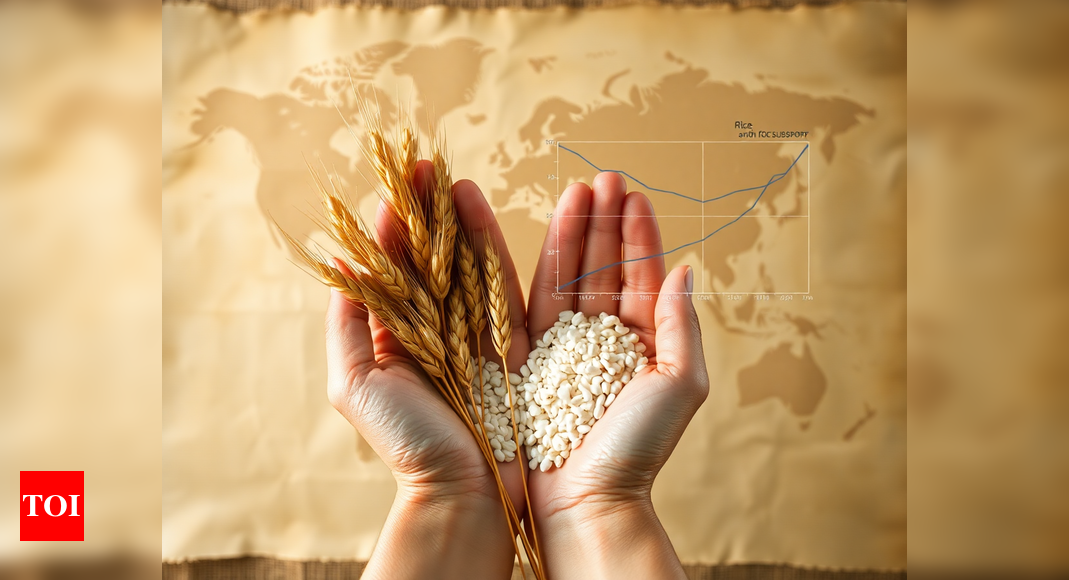India Face Scathing WTO Allegations Over Excessive Market Support for Wheat and Rice

In a communication submitted to the World Trade Organization (WTO), five WTO members - Argentina, Australia, Canada, Ukraine, and the US - have alleged that India provides excessive market support to wheat and rice, distorting global trade. According to the WTO's Committee on Agriculture, India's apparent Market Price Support (MPS) for rice appears to have been over 87 per cent of the value of production in each of the two covered years (2021-23).
The communication also revealed that India's recent domestic support notification covered more than $60.5 billion in "trade-distorting" domestic support under a rule of the Agreement on Agriculture (AoA). The WTO member countries claim that this exceeds the prescribed limit and poses a threat to world markets.
In response, an Indian official stated that the country will respond suitably to these allegations at a formal forum. India has invoked the Peace Clause provision in the past to provide excess support measures to rice farmers to sustain its existing public stockholding programs for food security purposes.
The WTO member countries are now calling on India to disclose more details about its domestic support arrangements and ensure that no trade-distorting subsidies are provided. They also expressed their commitment to discuss the significance of India's MPS for rice and wheat for both Indian markets and world markets in the future.
India has submitted its own notification, claiming that it has fulfilled its obligations under the AoA and continues to do so. The country argued that the global trade norms should allow for a fixed formula for calculating the food subsidy cap, which would provide certainty to farmers and producers alike.
The WTO's Food Security Framework was also mentioned in the context of India's public stockholding programme (PSH), which is based on the minimum support price (MSP) scheme. The PSH program aims to ensure that all Indians have access to a balanced diet.
This latest trade dispute highlights India's longstanding demand for reforms in global trade rules to help it address its food insecurity issues while respecting international obligations.
